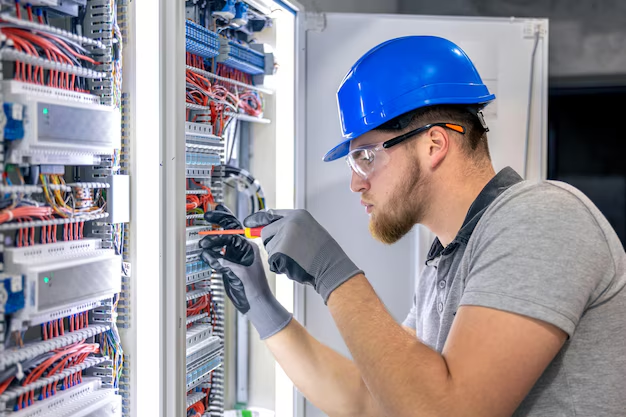Ready to Become a Master Electrician? Here’s Your Step-by-Step Guide
If you're intrigued by the world of circuits, wires, and every buzzing detail in between, becoming a master electrician might be just the path for you. This rewarding career not only ensures job security but also offers a high degree of specialization and professional autonomy. Let's explore how you can turn this ambition into reality.
Start with the Basics
High School Diploma or GED: Before embarking on your journey, ensure that you have completed high school or obtained a GED. Courses in physics, mathematics, and shop can provide a solid foundation for your career in electricity.
Explore Vocational Training: Enrolling in a technical school or a community college that offers electrical technology programs is a crucial next step. These programs typically cover electrical circuitry, safety protocols, and wiring techniques, providing essential hands-on experience.
Apprenticeship: Learn by Doing
Join an Apprenticeship: The apprenticeship is where theory meets practice. Typically spanning 4–5 years, apprenticeships combine classroom instruction with paid, on-the-job training under the supervision of experienced electricians. This period is not just about learning the technical skills but also understanding the nuances of the trade.
Licensing and Testing: Most states require electricians to be licensed. After completing your apprenticeship, you'll need to pass an exam that tests your knowledge of the National Electrical Code, local electrical codes, and electrical theory.
Climb the Professional Ladder
Gain Experience: Post-apprenticeship, gain experience by working as a journeyman electrician. You'll manage basic tasks independently and deepen your understanding of complex electrical systems.
Pursue a Master's License: To be recognized as a master electrician, you'll need several years of professional experience and to pass a more comprehensive licensing exam. Master electricians often oversee journeymen, plan projects, and ensure compliance with regulations.
Financial Resources to Light Up Your Path
Pursuing a career in electrical trades comes with financial challenges, but several resources can help ease the journey:
Government Aid and Scholarships
- Federal Pell Grant: Applies to vocational training schools, where aspiring electricians can avail financial support.
- State-specific Grants and Scholarships: Explore options like the Workforce Innovation and Opportunity Act (WIOA) which provides funding for skill development.
Financial Assistance and Debt Relief
- Apprentice Programs and Employer Sponsorships: Many employers offer sponsorships covering training costs, with the understanding that you'll work with them post-training.
- Debt-Relief Options: If you've taken out loans for your education, investigate repayment or deferment plans tailored for tradespeople.
Educational Loans and Credit Solutions
- Low-Interest Loans: Federal student loans often offer low-interest rates for those pursuing technical education.
- Credit Counseling: For those managing multiple financial obligations, credit counseling can offer structured solutions, ensuring you stay on track without financial stress.
Key Financial and Educational Tools to Support Your Journey
- 🎓 Pell Grants: Federal aid that doesn’t need to be repaid.
- 💡 WIOA Programs: State support for vocational training.
- 🏢 Employer Sponsorships: Work and train with financial backing.
- 💳 Low-Interest Loans: Manageable funding options for your education.
- ⚖ Credit Counseling Services: Professional advice to maintain financial stability.
Becoming a master electrician involves dedication and hard work, but with the right strategy and resources, you can illuminate this pathway with success. Whether through government aid, apprenticeships, or personal dedication, your future as a master electrician is bright.

